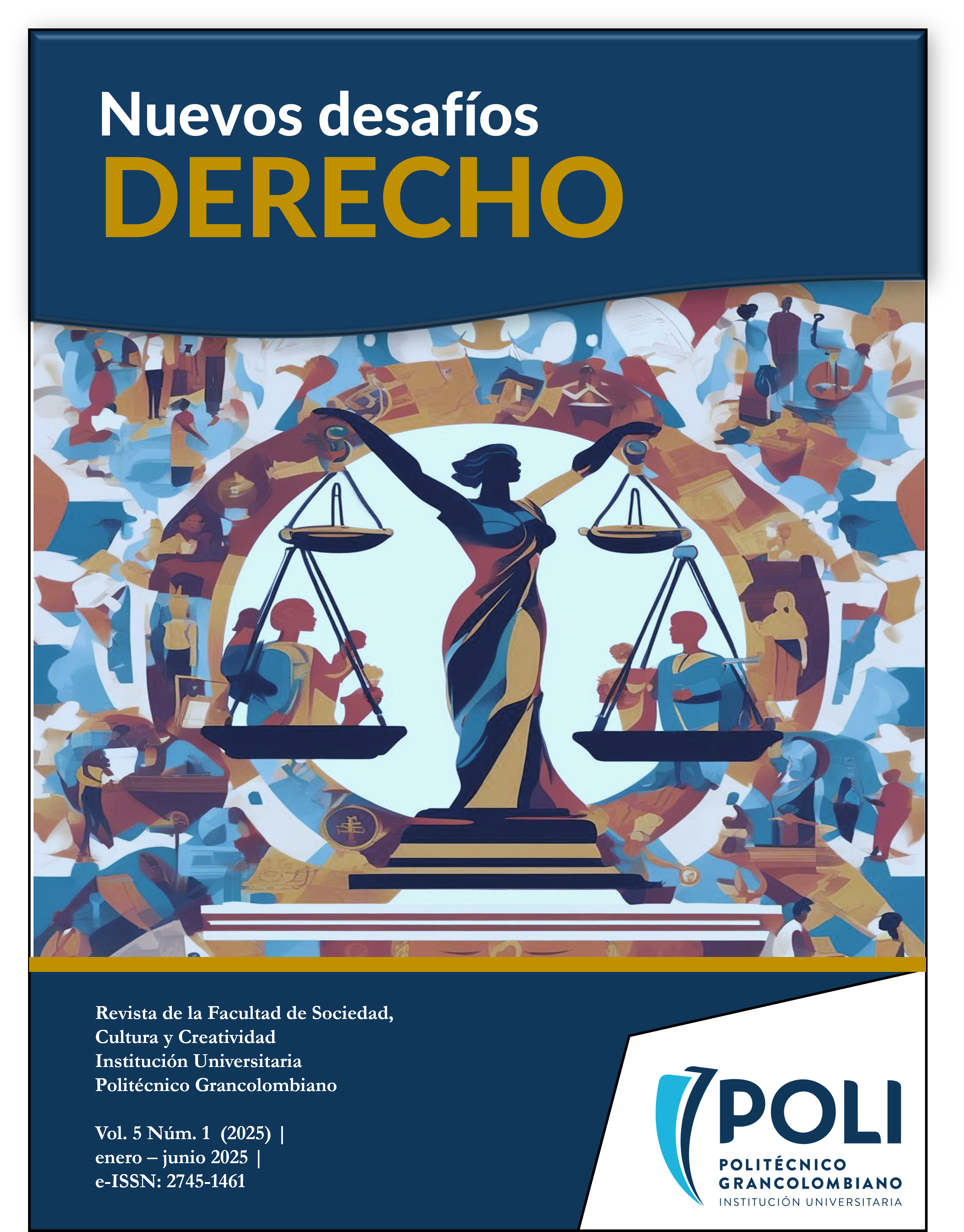Abstract
In the Colombian legal field, the regulation of artificial intelligence has advanced significantly thanks to the introduction of several bills, which will be analyzed in this research. Bill 059-23 will be studied, which aims to establish rules to regulate the use of Artificial Intelligence in different judicial areas, in order to ensure transparency in its application. This analysis focuses on studying how the regulation of Artificial Intelligence has changed in the law, focusing on its influence on access to justice. Bill PL 091-23 establishes norms for the use of artificial intelligence in government entities, especially in the judicial system. By analyzing these texts, we seek to determine how the bills may influence the future of Artificial Intelligence in the Colombian judicial system, affecting fairness and transparency in legal processes.
In this case, we will investigate in depth Sentence T-323 of 2024, which is an important milestone in the use of artificial intelligence in judicial decisions. This research will study whether people in Colombia agree with the use of artificial intelligence in the judicial system, since its acceptance and legitimacy depend on public opinion. This analysis will help to identify expectations, fears and possible resistances, which will allow designing policies and strategies to promote a responsible integration of artificial intelligence in the Colombian judicial system. An analysis of the positive and negative aspects will also be carried out to account for the topic, which will be an important source to understand opinions and social relations in relation to Artificial Intelligence.
Finally, this study seeks to conclude that, although artificial intelligence can improve the efficiency of the judicial system and allow a fairer access to justice, its implementation must be regulated and adjusted to the social and legal conditions of Colombia. This will ensure that this technology complies with the basic principles of justice, equity and human rights, and that it obtains the social support required to be effectively incorporated into the judicial system.
References
CAF, & Guío, A. (2021, 14 de septiembre). Por qué Colombia se ha posicionado como líder regional en inteligencia artificial | CAF. CAF.
Corte Constitucional [CC], Sala Segunda de Revisión, 17 de julio, 2024, MP: J. C. Cortés González, Sentencia T-323/24, [Col.]. https://www.corteconstitucional.gov.co/relatoria/2024/T-323-24.htm
Departamento Nacional de Planeación. (2019). Documento Conpes 3975: Política Nacional para la Transformación Digital.
https://colaboracion.dnp.gov.co/CDT/Conpes/Econ%C3%B3micos/3975.pdf
Flórez Hernández, I. C. (2020). Inteligencia Artificial aplicada a la Justicia. Derecho y Realidad, 18(35). https://doi.org/10.19053/16923936.v18.n35.2020.9638
Parlamento Europeo. (2023, 6 de diciembre). Ley de IA de la UE: primera normativa sobre inteligencia artificial | Temas | Parlamento Europeo.
República de Colombia. Congreso de la República. (2023). Proyecto de Ley Estatutaria 200-2023, PL (Bogotá, D.C.). Cámara de Representantes.
República de Colombia. Congreso de la República. (2023, 1 de agosto). Proyecto de Ley 059-23, por medio del cual se establecen los lineamientos de política pública para el desarrollo, uso e implementación de Inteligencia Artificial y se dictan otras disposiciones. Senado de la República. http://leyes.senado.gov.co/proyectos/images/documentos/Textos%20Radicados/proyectos%20de%20ley/2023%20-%202024/PL%20059-23%20Inteligencia%20artificial.pdf
República de Colombia. Congreso de la República. (2023, 9 de agosto). Proyecto de Ley 091-23, por la cual se establece la información para el uso responsable de la Inteligencia Artificial en Colombia y se dictan otras disposiciones. Senado de la República. http://leyes.senado.gov.co/proyectos/images/documentos/Textos%20Radicados/proyectos%20de%20ley/2023%20-%202024/PL%20091-23%20Inteligencia%20Artificial.pdf
República de Colombia. Congreso de la República. (2012). Ley 1581 de 2012, Protección de Datos Personales en Colombia. Diario Oficial, 48464. https://www.funcionpublica.gov.co/eva/gestornormativo/norma.php?i=49981
Rozo, N. (2024, 29 de julio). Índice de Congestión de la Rama Judicial en Colombia (Sector Jurisdiccional). Corporación Excelencia en la Justicia. https://cej.org.co/indicadores-de-justicia/efectividad/indice-de-congestion-de-la-rama-judicial-en-colombia-sector-jurisdiccional/
Veronese, A., & Lemos, A. N. L. E. (2021). Trayectoria normativa de la inteligencia artificial en los países de Latinoamérica con un marco jurídico para la protección de datos: límites y posibilidades de las políticas integradoras. Revista Latinoamericana de Economía y Sociedad Digital. https://doi.org/10.53857/mzbu2371

This work is licensed under a Creative Commons Attribution-NonCommercial-NoDerivatives 4.0 International License.
Copyright (c) 2024 Nuevos desafíos del Derecho

